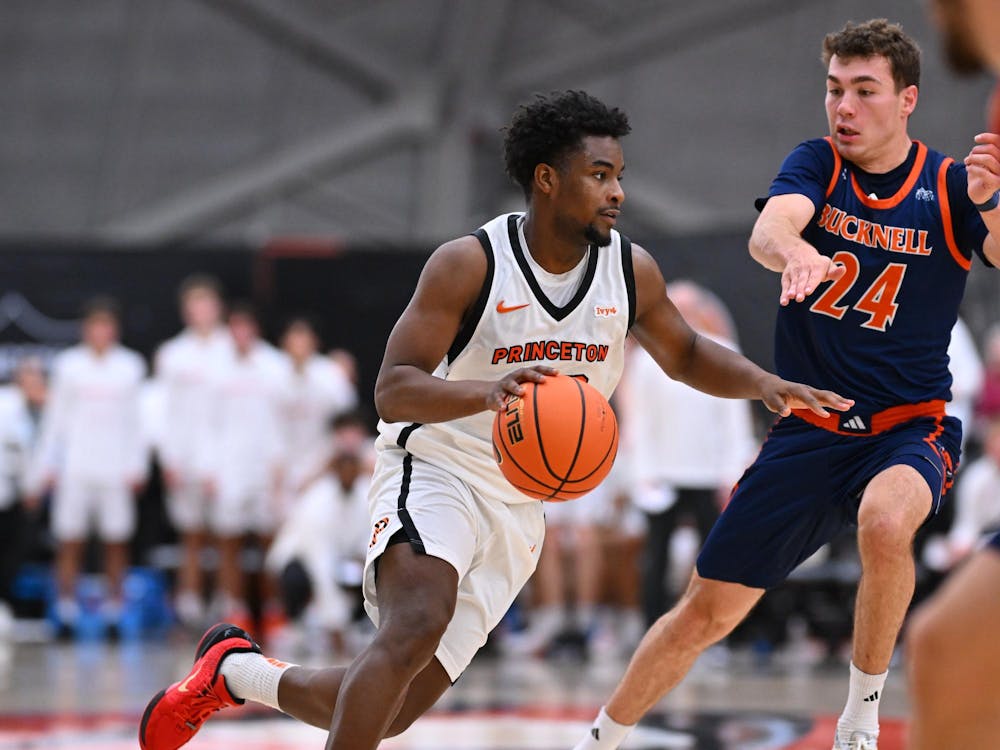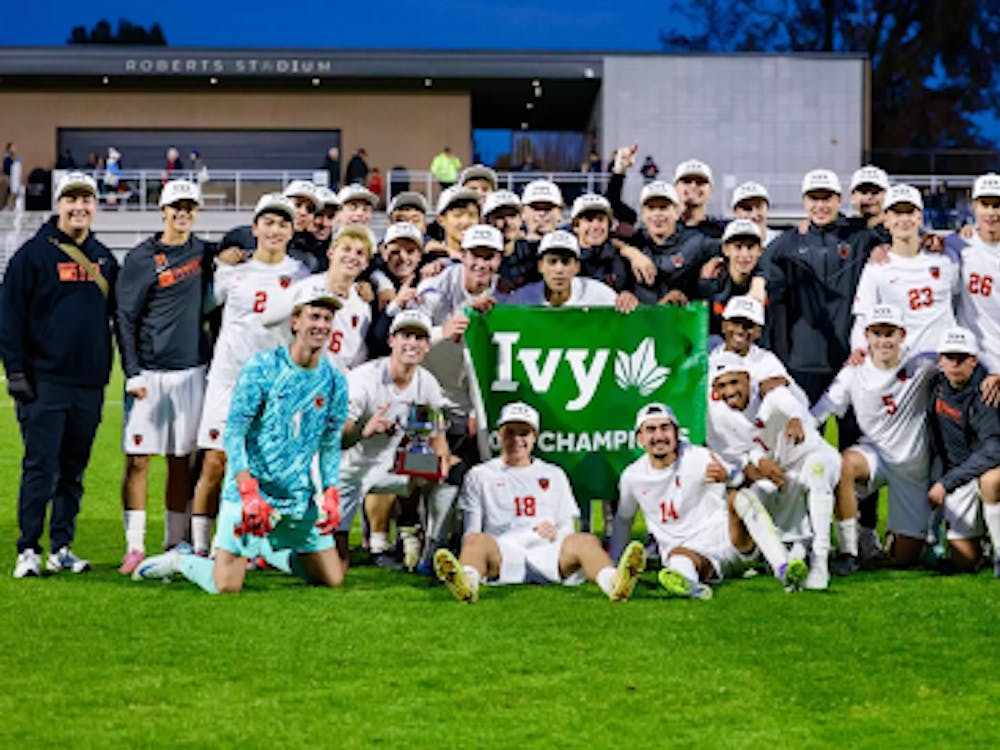I always seemed to be confused or disoriented whenever I was in St. Petersburg, Russia, this summer. After a hasty cell phone conversation with a Russian friend, Tanya, between classes one afternoon in late July, I emerged from a metro station on the outskirts of the city wondering how I would be spending the evening. Unsurprisingly, the conversation had been a jumbled mush and the only word I had understood was “ticket.” Perhaps we were going to some kind of theater?
Tanya emerged from the station 15 minutes later and soon we were off heading down the main avenue on the island. Signs soon appeared to indicate that we were not going to a show: After about 10 minutes we stopped at a movie theater to go to the bathroom and she seemed shocked when I said I’d wait outside.
I realized we were going to a soccer match about a block from the stadium. By now, we were surrounded by policemen and a sea of fans decked out in the blue-and-white jerseys of St. Petersburg’s leading club, Zenit. I had seen the waves of fans loitering outside the stadium on match day before but never thought I’d be able to enter the stadium myself — tickets are notoriously difficult to come by for non-Petersburg residents, perhaps a testament to Russia’s historically xenophobic culture. I had asked around at the small turf field where I played pickup soccer every afternoon with my Russian friends and other Americans and had only received helpless shrugs or even astonished laughter.
Yet here I was in front of the historic Petrovsky Stadium with Tanya, a native Petersburger, weaving in and out of some of the most intimidating fans in Eastern Europe. As we approached the stadium, I finally got the details: We were going to be watching Zenit St. Petersburg against Dynamo St. Petersburg in the fifth round of the Russian Cup. I was excited when I finally understood the news that had probably been delivered to me at least three times already that day.
A match between two Petersburg teams was a rare occasion: Dynamo, despite a glowing past, has languished in recent years and is currently in the second division. Zenit, on the other hand, is the powerhouse of Russian soccer — currently first place in the Russian League and holder of the Russian Cup. In 2008, the team won the UEFA Cup and defeated Manchester United in the European Super Cup Final. I expected this to be a walkover in favor of Zenit, though one can never be entirely certain in rivalries like these.
After multiple shakedowns from the militia and riot police — security was very tight even though Dynamo had only brought a few fans — we entered the 20,000-seat stadium. My eyes were immediately drawn to the north and south ends of the stadium, where the Zenit fanatics stood in full force the entire match. I was surprised to see a number of signs in English, including “Bridge City,” “Northwest Supporters” and the ubiquitous “Ultras.” Zenit ultras have the reputation of being some of the fiercest in Eastern Europe, firing flares and keeping the stadium in a constant crescendo through their singing during matches. Riot police linger ominously above the ultras at every match, ready to dive into the crowd wielding batons should something go awry. I wasn’t expecting the ultras to direct their ire toward a minor team like Dynamo — that anger was generally saved for matches against the Moscow clubs. As expected, the ultras easily shouted down the meager chants of the Dyanmo supporters early in the game with ear-splitting cries of “???? ?????, ???? ???????” ("One team, one city") that reverberated throughout the stadium. After the resounding shouts of the first few minutes, which included the singing of the Zenit anthem, the Zenit ultras left the Dynamo fans alone.
On the field, it appeared as if there really was one team. Zenit has a star-studded lineup with two World Cup participants — Bruno Alves and Danny of Portugal — and a number of standouts including Russian Alexander Kerzhakov. The home team opened the scoring after 13 minutes and looked comfortable for the remaining half hour. For much of the half, I admired the fans and the stadium. Despite the hideous heat wave that had swept the city the entire summer and the beating sun that hung high above the field even at 9 p.m., the stadium was still packed. Dynamo threatened once or twice, but it seemed like both teams were content just to be playing soccer on a warm summer evening.
After a halftime discussion with Tanya in which I stumbled over my speech while trying to explain the uniquely American concept of a snowday, I was back in my seat, expecting more of the same tacit domination by Zenit. But the Zenit ultras and Dynamo supporters looked equally stunned when Dynamo tied the game with a penalty kick a few minutes after the restart. The ultras remained quiet, confident that their team would rebound. They were rewarded minutes later when Zenit regained the lead with ease, adding a second goal, then a third. A fourth and a fifth were possible after World Cup star Danny entered the field, but the chances were wasted. I suspected that they would have been finished with ease in a more competitive league match.
Both teams ran out of steam toward the end and seemed happy to let it finish at 3-1. As I left the stadium with Tanya for the long walk back to the metro, I was struck by Zenit’s bright future: They have adamant support, a strong squad and a 60,000-seat stadium — the Gazprom Arena — nearing completion. What more could a team want? Perhaps the hegemony of the Moscow clubs in Russian soccer will soon be broken. According to the Zenit ultras, at least, it will be: “One city, one team,” the exiting fans proudly chanted again as I walked to the metro after the game. As the sea of blue and white fanned out through the boulevards and the ultras continued shouting support for their team, it seemed to me the entire city really was behind Zenit. That night, it appeared, the club was unstoppable, well on the way to reaching its namesake: zenith.








